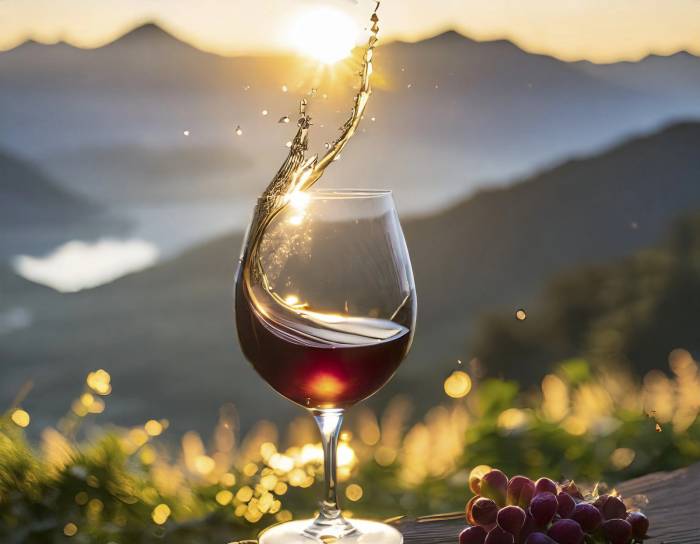Natural Wine Venues Worldwide Surge 60% in Three Years, Led by Paris and New York
Young urban consumers drive global boom as average bottle prices soar and new hybrid wine spaces reshape city nightlife
2025-10-31

The global market for natural wine is experiencing significant growth, according to new data released by Raisin, a French application that tracks establishments offering natural wines. Between 2021 and 2024, the number of bars, wine shops, and restaurants worldwide serving natural wine increased from 5,000 to 8,000. This represents a 60 percent rise in just three years. The figures were compiled by Raisin’s team, led by CEO Jean-Hugues Bretin, who believes the trend is far from reaching its peak.
Raisin was launched in 2016 and has since become a leading reference for the natural wine sector. The app lists venues where at least 30 percent of the wine selection meets the criteria for “vin Méthode Nature.” These standards include organic grapes, manual harvesting, no added yeast or filtration, and low sulfur content—less than 30 mg/L for reds and less than 40 mg/L for whites. The company claims its database is the most comprehensive overview of the global natural wine market.
France remains at the forefront of this movement. In 2016, Raisin listed 446 French establishments; by 2024, that number had grown to 2,655—a sixfold increase and a world record. Paris leads with 599 venues in 2024, especially concentrated in neighborhoods like Oberkampf, République, and Canal Saint-Martin. Bretin describes Paris as the “world capital of natural wine,” with the city’s 11th arrondissement as its stronghold. While the number of dedicated wine bars has slightly decreased between 2023 and 2024, this has been offset by a growing number of restaurants adding natural wines to their menus. According to Raisin’s data, there is no sign of market saturation in Paris; instead, growth continues steadily.
Other French cities also rank high globally for access to natural wine. Lyon, Marseille, Nantes, Toulouse, Bordeaux, and Nice all appear among the top cities worldwide for natural wine venues.
The trend is not limited to France. Since 2016, the average annual global growth rate for establishments serving natural wine has been 28.5 percent. Italy holds second place globally: it had just 46 venues listed in 2016 but now counts 1,623 in 2024—a thirty-fivefold increase. Germany’s numbers have multiplied by twenty-three over the same period. Switzerland, the Netherlands, and Spain have also seen double-digit growth rates.
The United States occupies third place on Raisin’s global podium. New York City—especially Brooklyn—has become a major hub for natural wine in North America. In many downtown New York restaurants, natural wines are now part of the standard offering. Natural wine bars are seen as gateways to discovering lively neighborhoods and local recommendations.
Raisin’s analysis paints a picture of an urban and cosmopolitan scene driven by young consumers who view natural wine as both a cultural marker and an identity choice. In 2024, Paris leads with 599 establishments serving natural wine, followed by New York (183), Rome (133), Barcelona (112), and Brussels (104). London and Copenhagen have dropped out of the top five since 2021, replaced by Barcelona and Brussels. Cities like Madrid, Berlin, Montreal, Seoul, and several mid-sized Italian cities are identified as promising markets for future growth. Switzerland is also highlighted as a country where consumer interest is rising.
Raisin has also examined consumption habits among its users. On average, they purchase seven bottles of natural wine per month at an average price of €18.39 per bottle (about $19.50 at current exchange rates), based on a survey conducted in early 2025. This is much higher than France’s national average bottle price of €4.20 ($4.45), which includes supermarket sales data from FranceAgriMer and other sources. In Paris specifically, finding a bottle under €15 ($16) in a shop is rare; prices in bars start at €35–45 ($37–48), while restaurant prices often begin at €55–70 ($58–75). Raisin notes that this inflation could be a barrier to wider adoption.
Despite rapid expansion over nearly a decade, Bretin acknowledges that the market is currently facing challenges similar to those affecting other sectors of the wine industry. He describes 2024 as a year when “the market is catching its breath” after years of double-digit growth but points out that annual increases still exceed 20 percent—a figure unmatched elsewhere in the wine world.
Raisin observes new trends emerging within the sector: hybrid formats such as combined wine shops and bars with kitchens; inns offering morning coffee alongside local cuisine and glasses of natural wine; acoustic evenings; tastings; and small festivals are all gaining popularity among enthusiasts seeking community experiences.
The study only includes venues registered on Raisin’s platform—either by business owners or app users—and each listing is verified through an algorithm followed by manual checks to ensure compliance with the “at least 30 percent natural” rule.
Raisin also tracks wineries but has not yet published detailed analysis on this segment. According to Eurostat data cited by Raisin, out of more than 75,000 vineyards in France, about two percent (1,536) are recommended by Raisin as producers meeting their standards for natural winemaking.
As interest in natural wines continues to grow across continents and demographics shift toward younger urban consumers seeking authenticity and community experiences around food and drink, industry observers will be watching closely to see how this dynamic sector evolves in coming years.
Founded in 2007, Vinetur® is a registered trademark of VGSC S.L. with a long history in the wine industry.
VGSC, S.L. with VAT number B70255591 is a spanish company legally registered in the Commercial Register of the city of Santiago de Compostela, with registration number: Bulletin 181, Reference 356049 in Volume 13, Page 107, Section 6, Sheet 45028, Entry 2.
Email: [email protected]
Headquarters and offices located in Vilagarcia de Arousa, Spain.